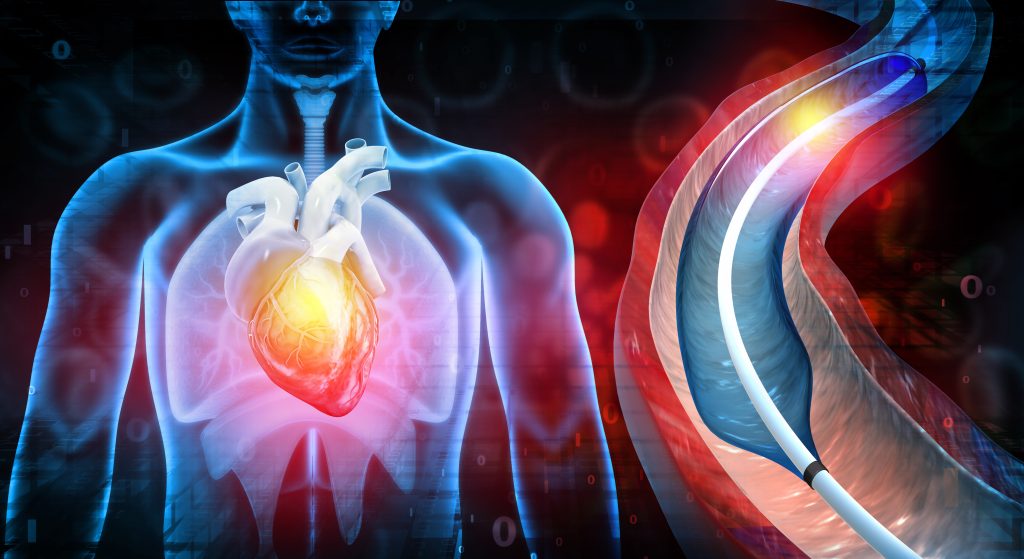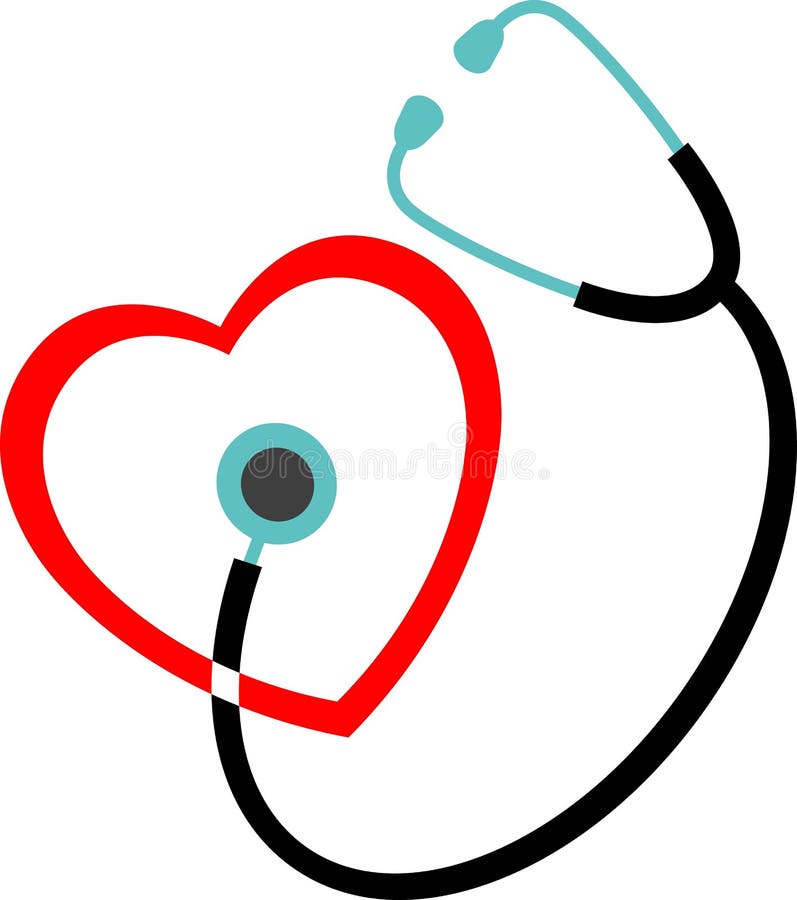Natural cholesterol-lowering remedies from Cardiology Jupiter
Natural cholesterol-lowering remedies from Cardiology Jupiter
Blog Article
Recognizing the Relevance of Cardiology in Modern Healthcare Services
Cardiology plays a vital duty in contemporary healthcare, especially as cardiovascular disease remains to be the leading reason for mortality worldwide. Advances in diagnostics and therapy have changed person care, enabling earlier interventions and improved results. The shift in the direction of preventative cardiology empowers individuals to manage their wellness proactively. As modern technology continues to advance, the combination of cutting-edge services may even more redefine cardiology's effect on public health, prompting a closer evaluation of arising fads and their implications.
The Prevalence of Heart Condition and Its Effect On Public Health And Wellness
Although heart problem stays the leading cause of death internationally, its effect expands much past specific clients to influence public wellness systems and economies. The high occurrence of heart problem positions a significant strain on health care resources, necessitating boosted funding for prevention, rehabilitation, and treatment programs. Public health and wellness initiatives have to deal with danger variables such as obesity, smoking, and inactive way of lives, which contribute greatly to the climbing incidence of heart conditions.Moreover, the economic worry connected with heart disease is enormous, including not just straight medical prices yet additionally indirect expenses associated with shed productivity and premature death. Areas deal with difficulties in managing these costs, usually leading to variations in medical care access and outcomes. As the populace ages and lifestyle-related risks remain to rise, the necessity for efficient cardiology interventions ends up being paramount. Consequently, dealing with heart condition is not only an issue of specific health yet also an essential public health and wellness concern.
Advancements in Cardiac Diagnostics and Imaging Techniques
Current innovations in heart diagnostics and imaging techniques have changed the area of cardiology, improving the capability to spot and check heart problem. Methods such as cardiac MRI, CT angiography, and echocardiography have come to be increasingly advanced, giving comprehensive pictures of heart structures and features. These modalities permit the early identification of problems like coronary artery condition, heart failing, and valvular disorders.Moreover, advancements in non-invasive diagnostics, such as wearable modern technology and remote surveillance devices, have actually equipped people and doctor. These tools facilitate real-time tracking of heart rhythms and various other vital indicators, causing prompt treatments. Furthermore, synthetic knowledge is being integrated into imaging analysis, boosting precision and effectiveness in diagnosis.
Innovations in Therapy Choices for Heart Conditions
Recent developments in cardiology have caused significant developments in therapy alternatives for heart disease. These consist of advanced surgical methods that enhance procedural end results and emerging drugs that provide brand-new avenues for treatment. As the field evolves, these technologies play an important duty in boosting person care and end results.
Advanced Surgical Techniques
Technologies in medical techniques have actually changed the landscape of cardiology, providing brand-new hope for clients with heart disease. Minimally intrusive treatments, such as catheter-based treatments, have actually substantially minimized healing times and hospital keeps. Methods like robotic-assisted surgery enhance accuracy, allowing doctors to browse complicated physiological structures with greater accuracy. Improvements in imaging technology help with real-time visualization during procedures, boosting results. Transcatheter aortic valve replacement (TAVR) exhibits an advancement in dealing with aortic stenosis, making it possible for shutoff replacement without open-heart surgical treatment. In addition, hybrid strategies that incorporate medical and catheter-based methods supply tailored options for different heart concerns. These innovative surgical techniques not only enhance individual safety and security however additionally increase treatment alternatives, highlighting the essential duty of advancement in modern cardiology methods.
Arising Therapies and drugs
As the landscape of cardiology continues to evolve, emerging therapies and drugs play a pivotal function in enhancing therapy choices for heart conditions. Advancements such as novel anticoagulants and advanced lipid-lowering representatives have transformed the administration of heart diseases, considerably minimizing patient morbidity and death. Additionally, the development of gene therapies and regenerative medicine offers encouraging opportunities for treating problems formerly considered incurable. Scientific tests are consistently exposing the efficacy of these treatments, pressing the boundaries of typical therapies. Furthermore, the combination of electronic health technologies promotes tailored medicine, permitting customized therapy plans based upon genetic and way of living variables. Jointly, these innovations emphasize the dynamic nature of cardiology, boosting person end results and redefining criteria of care in modern healthcare.
The Role of Preventive Cardiology in Individual Care
Precautionary cardiology plays a vital duty in client care by concentrating on the identification of danger aspects that add to cardiovascular disease. Via way of living alteration approaches and early detection methods, health care carriers can effectively reduce the occurrence of cardio occasions - Dr Garcia. This aggressive strategy not just boosts person results but likewise advertises long-term health and wellness
Threat Element Identification
While cardiovascular diseases stay a leading source of morbidity and death worldwide, reliable risk factor recognition works as a cornerstone of preventive cardiology. Identifying risk elements such as high blood pressure, hyperlipidemia, household, and diabetes mellitus background is important for early treatment. Healthcare experts use different screening techniques to assess these elements, enabling tailored safety nets. Furthermore, recognizing a client's way of life choices, such as smoking cigarettes and physical inactivity, further notifies threat have a peek at this site evaluations. This thorough analysis enables medical professionals to create individualized treatment plans targeted at mitigating threats. By prioritizing danger variable identification, health care systems can boost patient results and lower the overall problem of heart diseases, eventually adding to improved public health and wellness approaches and resource allocation.
Way Of Life Alteration Approaches
A wide range of research studies highlights the essential role of lifestyle adjustment methods in lowering cardio disease risk. These methods incorporate nutritional adjustments, increased exercise, cigarette smoking cessation, and weight administration. By embracing a heart-healthy diet regimen abundant in fruits, veggies, entire grains, and lean healthy proteins, people can decrease cholesterol degrees and high blood pressure. Routine exercise reinforces the heart and boosts general cardio health and wellness. In addition, stopping cigarette smoking greatly reduces the threat of cardiovascular disease and boosts recuperation prices for those with status quo. Weight monitoring further adds to cardio wellness by alleviating other risk factors such as diabetes and hypertension. Executing these lifestyle changes not just advertises individual well-being yet additionally works as a keystone of precautionary cardiology in client care.
Very Early Detection Techniques
Way of living alterations substantially add to decreasing cardiovascular condition dangers, but they are most reliable when coupled with early detection methods. Preventive cardiology emphasizes the significance of determining potential heart concerns prior to they escalate right into severe problems. Strategies such as high blood pressure monitoring, cholesterol testing, and advanced imaging modern technologies like echocardiograms play critical functions in reviewing cardiovascular wellness. Biomarkers and genetic screening also boost the precision of early discovery, enabling customized preventive techniques. Regular cardiac threat assessments encourage healthcare providers to step in proactively, possibly avoiding cardiac arrest and strokes (Cardiology). By incorporating these early discovery approaches into routine treatment, people can take advantage of timely way of life treatments and targeted therapies, ultimately enhancing end results and enhancing lifestyle
Integrating Technology Into Cardiology Practices
As developments in technology proceed to improve numerous fields, the integration of ingenious devices and systems right into cardiology techniques has actually become important for enhancing person care and end results. Telemedicine platforms allow cardiologists to check patients from another location, boosting accessibility to care while minimizing the burden on healthcare facilities. Wearable devices, such as smartwatches, allow constant heart rate tracking, notifying both doctors and individuals to prospective concerns in real-time. In addition, expert system (AI) is being utilized to evaluate huge amounts of heart data, assisting in early medical diagnosis and tailored treatment strategies. Advanced imaging methods, including 3D echocardiography, enhance visualization of heart structures, leading to more exact treatments. Electronic health documents (EHRs) enhance client information management, making certain that cardiologists have instant access to crucial information. With each other, these technological advancements are changing cardiology, promoting aggressive administration and boosted health and wellness outcomes for patients with cardio conditions.
The Relevance of Individual Education And Learning and Engagement
Person education and interaction play a pivotal function in the monitoring of cardiovascular health. By equipping individuals with knowledge regarding their problems, treatment choices, and way of living adjustments, doctor equip people to take an energetic role in their treatment. This aggressive approach can result in boosted adherence to suggested medicines, nutritional changes, and exercise programs, inevitably reducing the risk of complications.Engagement likewise cultivates a solid patient-provider connection, urging open interaction and a fantastic read trust fund. When patients feel notified and included, they are most likely to voice problems and ask concerns, which can cause far better professional end results. Additionally, educational resources, such as workshops or digital platforms, can enhance understanding and advertise self-management approaches. Overall, focusing on patient education and engagement is essential for enhancing cardiovascular health, enhancing lifestyle, and minimizing health care expenses connected with cardiovascular illness.
Future Trends in Cardiology and Their Potential Impact

Often Asked Questions
What Way Of Living Adjustments Can Decrease Cardiovascular Disease Threat?
The existing concern addresses lifestyle adjustments that can greatly decrease heart problem threat. Cardiology. Embracing a well balanced diet plan, taking part in regular exercise, preserving a healthy and balanced weight, handling tension, and staying clear of cigarette can notably enhance cardiovascular wellness
Exactly How Can I Identify Early Indicators of Heart Issues?
Identifying early indicators of heart issues entails monitoring signs and symptoms such as chest discomfort, shortness of breath, fatigue, and uneven heartbeat. Prompt awareness of these signs can motivate required clinical examination and treatment for better outcomes.
What Are the Distinctions Between Cardiologists and Cardiac Surgeons?
The distinctions between cardiologists and cardiac doctors hinge on their duties; cardiologists primarily identify and take care of heart conditions via non-invasive methods, while cardiac specialists perform operations to remedy architectural heart issues. Each plays a crucial, distinctive role.

Just how Usually Should I Obtain My Heart Health And Wellness Checked?
The frequency of heart checkup varies based on private risk variables. Normally, adults need to go through assessments each to two years, while those with status quo might need even more frequent assessments as suggested by health care professionals.
What Duty Does Genetics Play in Cardiovascular Disease Danger?
Genetics considerably influences heart condition danger, with domestic patterns suggesting acquired conditions. Details genes can incline people to hypertension, cholesterol issues, and various other cardiovascular problems, highlighting the relevance of genetic testing in evaluating heart wellness. Heart disease continues to be the leading cause of death globally, view it its effect extends far past individual clients to influence public health systems and economic climates. Public wellness initiatives need to address danger variables such as obesity, cigarette smoking, and inactive way of livings, which contribute considerably to the climbing incidence of heart conditions.Moreover, the financial burden connected with heart condition is tremendous, encompassing not only straight clinical prices but also indirect costs associated to lost efficiency and early death. Preventative cardiology plays a necessary duty in patient care by focusing on the identification of risk elements that contribute to heart illness. Synthetic knowledge (AI) and maker understanding are boosting diagnostics and person monitoring, enabling early discovery of heart diseases. The distinctions in between cardiologists and heart doctors exist in their roles; cardiologists mainly identify and take care of heart conditions via non-invasive techniques, while cardiac surgeons do medical procedures to fix structural heart issues.
Report this page